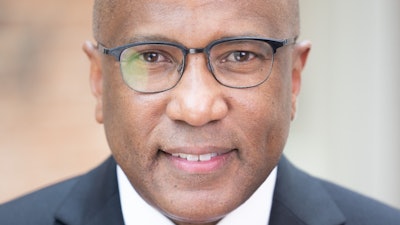The introduction and rollout of the new Better FASFA (Free Application for Federal Student Aid) form has led to a multitude of challenges, setbacks, and concerns among students, caregivers, and educators. What began as a well-intentioned effort to simplify what has historically been a cumbersome process to apply for federal student aid has been made even more complex, resulting in delays in enrollment decisions for many students, particularly students of color who disproportionately rely upon student aid awards in choosing institutions, and greater uncertainty for institutions of higher education like historically Black colleges and universities (HBCUs) who disproportionately serve the very student population that is dependent on federal student aid to facilitate their cost of attendance. And while HBCUs provide a place of community, support and opportunity for Black students seeking higher education, the institutions are themselves increasingly at risk of decreased enrollment and, potentially, the loss of funding and the closure of their institutions if a solution is not presented expeditiously to address the wide-ranging issues created by “Better FASFA”.
 Dr. Harry Williams
Dr. Harry Williams
As an advocate for HBCUs and the Black collegiate community, the Thurgood Marshall College Fund (TMCF) is dedicated to finding immediate solutions and shifting how government leaders are managing the Better FASFA process; a process that is negatively impacting TMCF’s member-schools and their students, and further backpedaling on the government policies and business practices put in place to help advance equity and opportunity, critical to the success of TMCF member institutions and students. As the largest champion of the Black college community and the only national organization to provide both financial and professional development support to students attending publicly supported HBCUs, TMCF notes that the delays and lack of clarity surrounding Better FASFA are presenting dire consequences for its students and institutions.
HBCU leaders and their campuses are experiencing heightened frustration while trying to navigate this new process, which is compounded by ongoing attacks on diversity, equity, and inclusion, including the dismantling of DEI offices and programs across the country. Meanwhile, students attending TMCF member-schools are experiencing significant insecurity about the financial aid they have applied for and what resources will ultimately be available to cover their cost of attendance.
How delays will impact HBCUs and students
HBCUs, which primarily consist of Black students who rely on Pell Grants (more than 75%), or other forms of federal financial aid (more than 75%), have received little support from states with the uncertainty surrounding Better FAFSA. Many institutions are grappling with budget drafting challenges amidst the unpredictability of enrollment for the upcoming academic year. Additionally, some have faced the threat of institutions being closed and many fear the same. These obstacles and the changes to FASFA are creating a snowball of unanswered questions and increased risks for TMCF member schools and HBCUs more broadly speaking.
A major risk, creating real fear amongst the Black college community, is the potential errors in the amount of financial aid awarded to students. If there are mistakes in their award packages, students may not receive the full amount of aid or may be over awarded, and HBCUs could unfairly be held responsible for this issue. Another crucial issue pertains to delays in processing student FASFA applications. Due to these delays, HBCUs are falling behind schedule with limited time and resources to catch up, and many HBCU presidents and chancellors have voiced concerns on how this issue, among others, will lead to diminished enrollment at their institutions and, potentially, diminished future appropriations.





















